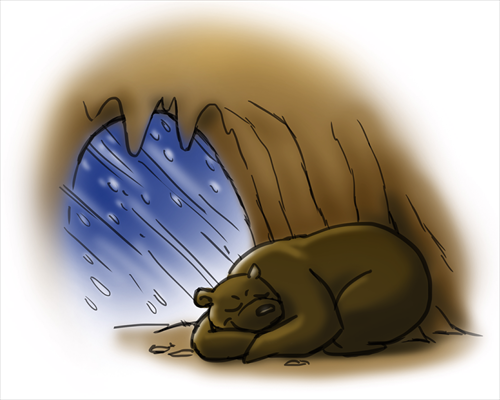Russian economy won’t collapse, but slowdown and adjustment inevitable

Illustration: Liu Rui/GT
Over the past week, the whole world has been fixed on the state of the Russian ruble. Last Tuesday, the ruble declined dramatically, even though the Central Bank of Russia had increased its key interest rate to 17 percent. This has revived memories of Russia's 1998 economic crisis. Then how should we perceive the weakening ruble and its potential impact?
The decline of ruble this time is the result of the accumulated slowdown of the Russian economy in the past few years. Since the 2008 global financial crisis, the Russian economy has experienced an obvious trend of decline. Although the economy revived occasionally, it stayed lukewarm. In 2013, the growth rate was only 1.5 percent.
Meanwhile, since the Ukrainian crisis, Russia's hardline foreign policy has escalated economic sanctions imposed by Western countries, adding more difficulties to the already gloomy situation. The recent plummeting oil prices also dealt a heavy blow to the situation, shaking the market's confidence toward the ruble. These are the most direct and important cause for the ruble's steep fall. This shows the recent ruble crisis, which is the outcome of both internal and external factors, is unlike the 1998 economic crisis. Given the incomplete internal economic structure and the external antagonism, the current crisis is unavoidable.
For how long the devaluation of the ruble continues is determined by what financial policies the Russian government will carry out and what solutions could be decided between Russia and the West over the Ukrainian crisis. Russia, which has long suffered from economic sanctions, can hardly retain the stability of its currency.
Despite the fact that the weakening ruble has almost broken the bottom line the Russian market can bear, it doesn't necessarily mean the Russian economy will collapse. Even though Russia is experiencing an economic winter, it can still hold on. First, Russia is a big power. Its vast territory and rich resources give it a tenacious power to endure economic difficulties. History proves that rich resources can push the Russian economy back to the right track.
Although the economic structure is yet to improve and Russia is overdependent on international energy prices, Russia, after 23 years of economic development since the dissolution of the Soviet Union, has accumulated considerable foreign exchange reserves and become richer. The public can bear a short-term economic slowdown, which is totally different from the situation in the 1990s.
The current crisis, partly stemming from Western sanctions, is characterized by rivalry between Russia and the West. Traditionally, when the Russian people meet hardline adversaries, they will become more determined. Educated with a sense of patriotism, the public has the determination to resist the pressure.
The Russian government is adjusting its foreign policies. On the one hand, it aims to seek new diplomatic breakthroughs. Emerging economies such as China, India and Iran are among the highlights of its diplomacy. On the other hand, it is also seeking the proper moment to adjust its policies toward the West, including its stance on the Ukrainian crisis. The West has the same intention, too. Such adjustments will help ease the economic climate.
The current ruble crisis shows the Russian economy is facing the most severe test and the possibility that the ruble continues to decline cannot be excluded. But from a long-term perspective, the Russian economy will not collapse.
The author is an associate research fellow at the Institute of Russian, Eastern European & Central Asian Studies at the Chinese Academy of Social Sciences. opinion@globaltimes.com.cn